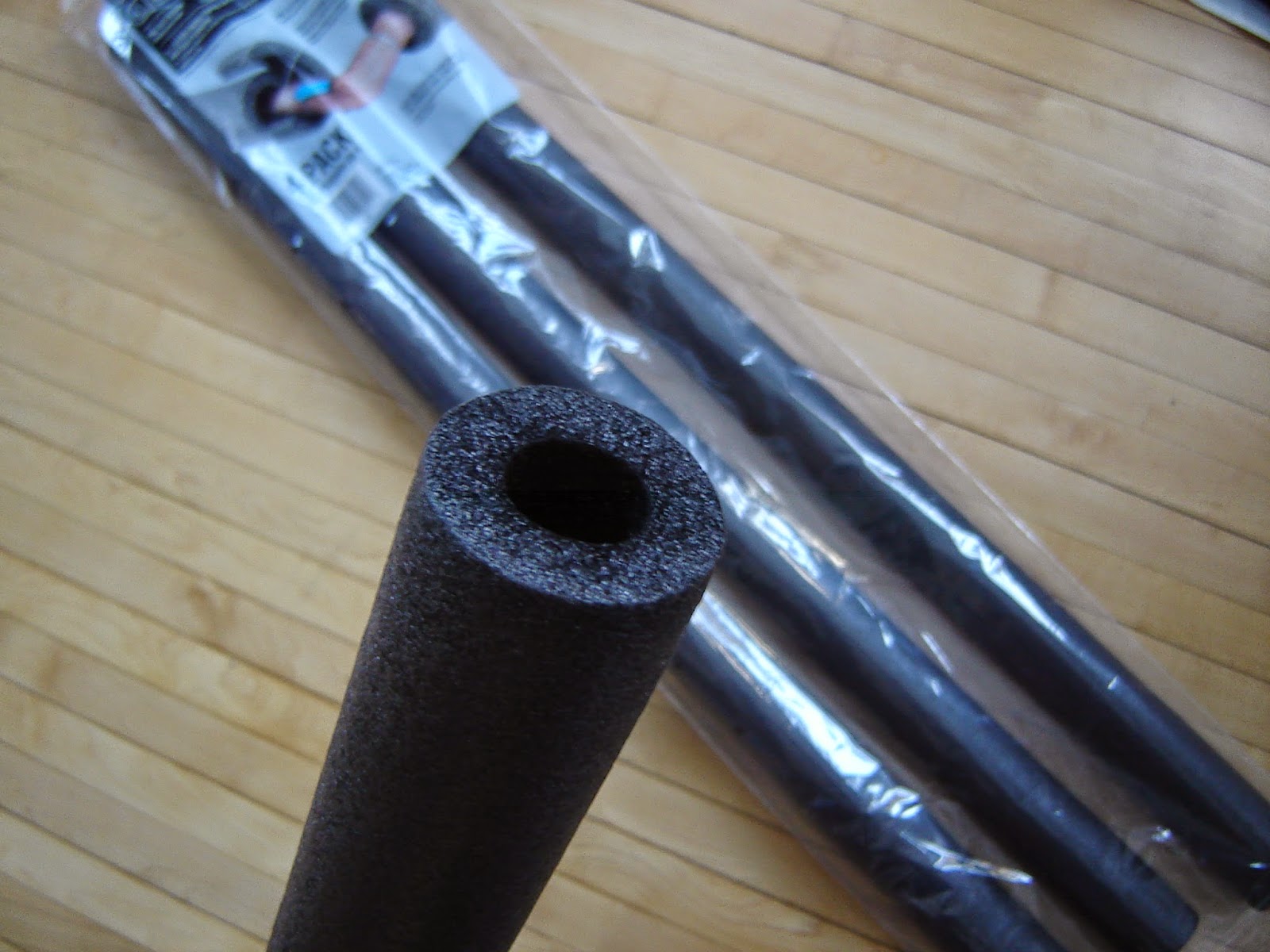HAPPY HAPPY NEW YEAR!
It is COLD right now in Minnesota. I mean 25 degrees below zero plus some nasty wind COLD! So I decided to do a little "functional" sewing today and make up a double-sided draft stopper for our front door. Full disclosure - I don't do a whole lot of "functional" sewing. I embroider cute little birds and happy little snowmen. I can sew a button... maybe repair a torn seam... but that's about it. So this was a nice little challenge for me. I got to use the tape measure. I even hooked it to my belt... makes a girl feel important, you know? :)
So step one is to get that tape measure out, and measure the length of your door. Then measure the width of your door. Jot those numbers down and...
Take yourself into that freezing cold wind and purchase some "outdoor fabric". That's what it's called. Upholstery fabric or anything like that would work well too. Choose something to match your furniture or that will blend well with the floor. My door measures just shy of 2" in width, and a 1/2 yard of fabric was exactly enough. Maybe get a little more if you want to play around with it.
You'll also need a couple of pipe covers. Pick these up at any home goods store, WalMart, wherever. You want ones that are almost as long as your door. My door is 36" across, and so are these pipe covers. I'll actually cut them down a bit to allow me to open and close my door - a critical piece, don't you think?
Give your outdoor fabric a nice gentle wash, and air dry. I just threw mine over the radiator, and it was dry in 10 minutes.
Cut your fabric like this:
Length: The length of your door, plus about 3". My door is 36" so I cut my fabric to about 39".
Width: Cut to about 18". Again, my door is just shy of 2" in width, and 18" worked well. It's not a super tight fit, but seems about right.
And don't worry about getting technical. Remember, this sits on your floor, and gets batted around by the dog. Approximates are a-okay!
Fold RIGHT SIDES OF FABRIC together along the long edge. Pin one long edge and one short edge in place. Use pretty pins because you'll blog about this later.
Kindly ask your kitty to get out of your sewing chair...
And sew one long edge and one short edge. I sewed over each twice, just because of that whole sitting on the floor, dog batting it around thing. I want it to be durable!
Turn your door draft stopper, and toss those pipe covers inside.
Quick trial run to see how it fits! See here how my pipe covers are too long. I'll need to cut those down so that the door can open and close easily.
Cut those pipe covers down to your liking. I cut mine to measure about an inch less than my door.
Now pull out the pipe covers, and fold your draft stopper in half just to create a little crease down the middle. Eyeball it, and then sew right down that crease. Somewhere CLOSE to the middle is just fine!
Stop short 3" or so from the end.
Pop those pipe covers back in, and cut off excess fabric, leaving yourself enough to sew up the end.
Tuck those loose ends in, any which way you can. I sort of made a little present at the end. Sew up with some sturdy thread, and voila!
Ok, almost voila. My ends puckered a little and were getting stuck in the door. So I just folded them in, and sewed them to the bottom. Easy little fix, and you can't see it from the top.
Now for real, voila! Bye bye draft. Don't you love that rug in the entryway? A Christmas present from my mom; she made it herself! You'll have to ask her how she did that... I'm just the door draft stopper girl.
There you are, a fun and inexpensive little do-it-yourself-er. I'm going to use that striped fabric to make a door snake for an interior door. That should be even easier... I'll just make the pocket, fill it with rice, and sew up.
Happy stitching, and STAY WARM!!
Sara
































































